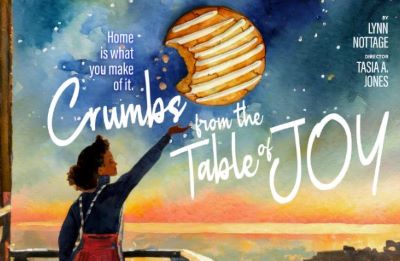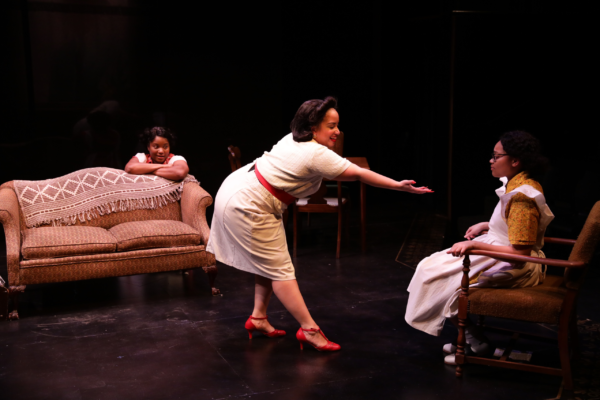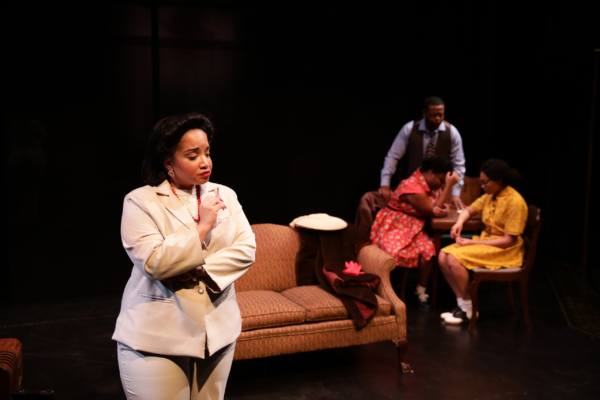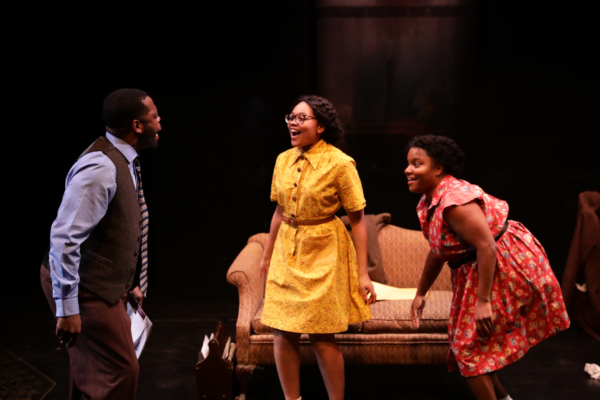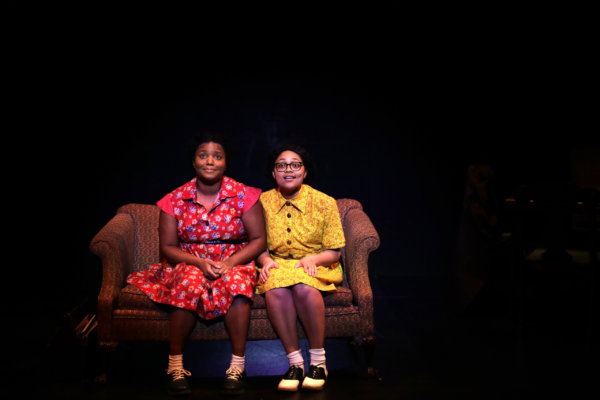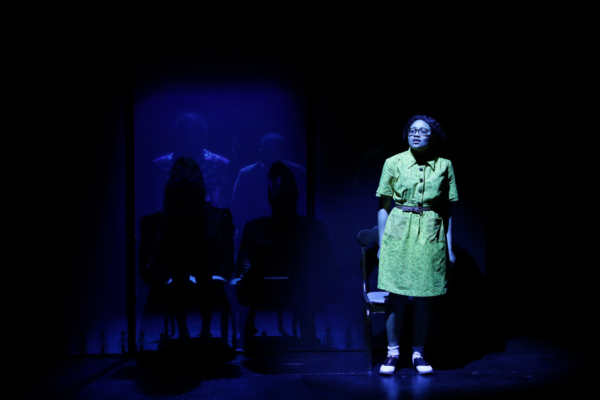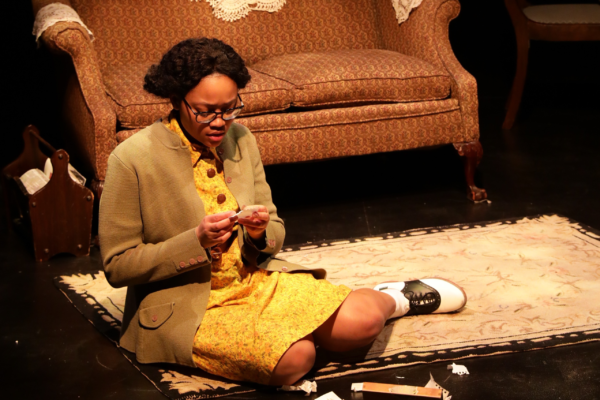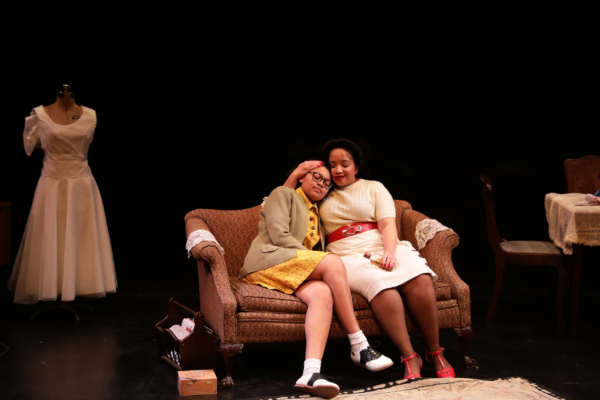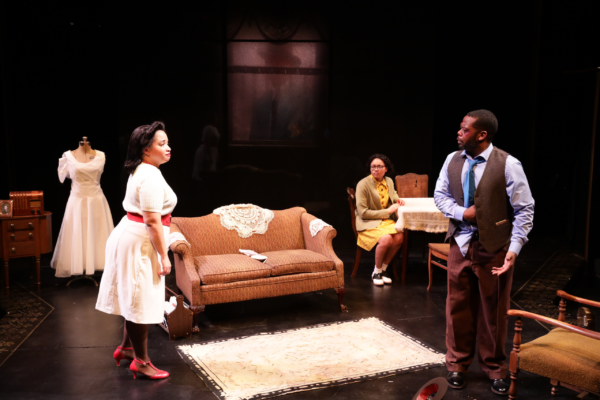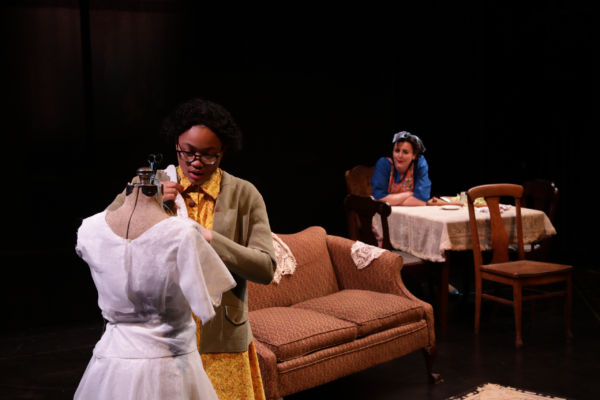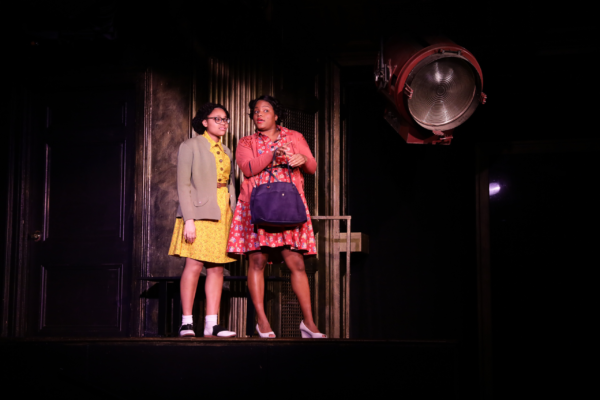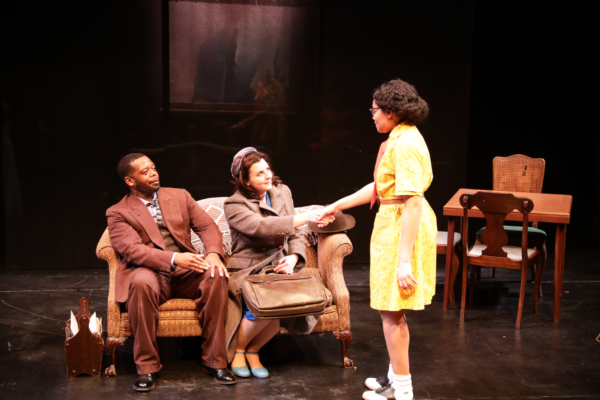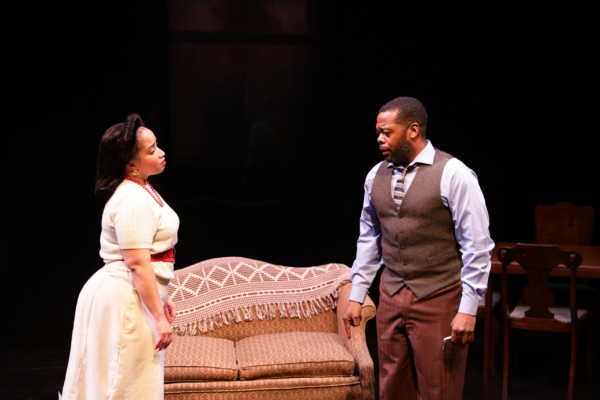HOW THE COOKIE CRUMBLES
From Intimate Apparel and Sweat to Clyde’s, playwright Lynn Nottage is known for her ability to illuminate the lives of ordinary and working-class people, Black and white. Crumbs from the Table of Joy is one of her early plays, first produced in 1995. Under the direction of Tasia A. Jones, the Lyric Stage production brings us into the fascinating world of a specific family touched by the social conditions and movements in New York City in the early 1950s. This is a play well worth seeing, if only for a glimpse into the work of an important American playwright who has continued to produce ground-breaking work.
Ernestine Crump (Madison Margaret Clark) our narrator and point-of-view character, opens the play with a prologue worthy of Langston Hughes (whose 1947 poem, “Luck,” is the source of the title), in which we learn of the death of her mother and its impact on her father Godfrey Crump (Dominic Carter) and her sister Ermina Crump (Catia): “Death made us nauseous with regret. It clipped Daddy’s tongue and put his temper to rest / And then one day it stopped and we took the train north to New York City.”
This is where our story picks up. Godfrey has left Pensacola Florida with his two young daughters. He gets a job in a bakery, leaving his daughters to adjust to life in Brooklyn, where they are mocked for their country braids and simple dresses, handmade with love by their departed mother. Ernestine, about to become the family’s first high school graduate, is serious and seeking. Younger Ermina is sassy and ready to fight those who mock her and her sister. Both girls find comfort in going to the “pictures,” where they lose themselves in dramatic and romantic stories, and one of the more delightful elements of this script are Ernestine’s efforts to transform her family’s challenges into the kinds of satisfying resolutions she has seen in the movies, vignettes made all the more effective through the lighting design of Eduardo Ramirez. Godfrey struggles to keep the family together but has little to offer but the cookies he brings home in his pockets from the bakery where he works.
Into this mix arrives Lily Ann Green (Thomika Marie Bridwell), sister to the girls’ mother. Stylish Lily, who has been living in Harlem, sees dressing well as a form of revenge against white people who disparage her. She is full of ideas and energy: a communist activist, proud of her Black heritage. Down on her luck, she moves in with the family. Bridwell in particular brings humor and energy, as well as poignancy, to her complex role.
Lily sees some romantic possibilities with Godfrey. But Lily loves to dance and smoke and drink, while Godfrey, who once lived the high life in Florida, is a changed man following the death of his wife. He has been drawn to the north by Father Divine, an inspirational preacher who believed in Black uplift and community building through clean living. I was curious about this element of the play because I often went to Father Divine’s restaurant for cheap meals with friends back when I lived in West Philadelphia. We had a vague sense of Father’s Divine’s spiritual program, but mostly we were drawn to the restaurant for its wholesome food at reasonable prices.
Because of his devotion to Father Divine, Godfrey doesn’t allow his girls to play the radio on Sundays. And while he finds Lily, with her sensuous dance moves and flirting, attractive, he is determined not to return to that kind of life. Following a particularly heated interaction with Lily in which she turns on the full force of her seductive powers, he storms out of the apartment. His eventual return with a new wife (Bridgette Hayes) further destabilizes the already fragile family structure.
Set Designer Cristina Todesco makes the most of the Lyric’s compact stage, creating a subway platform and an outdoor stoop on scaffolding above the interior scene on the main stage. Unfortunately, however, this production was marred by poor voice projection and inadequate sound management. Clark, currently pursuing her BFA at Boston Conservatory, brings emotion to Ernestine, especially in her very moving epilogue which includes the efficiently rendered stories of all these characters. But Clark isn’t always audible, and the clarity of her lines is further marred by a southern accent that might have been perfectly clear had the sound delivery been better. Some lines spoken by other characters were obscured by music meant to come out of the radio (Sound Designer Aubrey Dube), and on at least one occasion, actors at a table upstage addressed one another at an unintelligible volume. This is a shame; Nottage brings us a rare glimpse into the competing visions for Black progress and liberation on the eve of the civil rights movement. It’s a story that deserves to be better known—and heard.
photos by Mark S. Howard
Crumbs from the Table of Joy
Lyric Stage Company
140 Clarendon Street in Boston
ends on February 2, 2025
for tickets, call 617.585.5678 or visit Lyric
